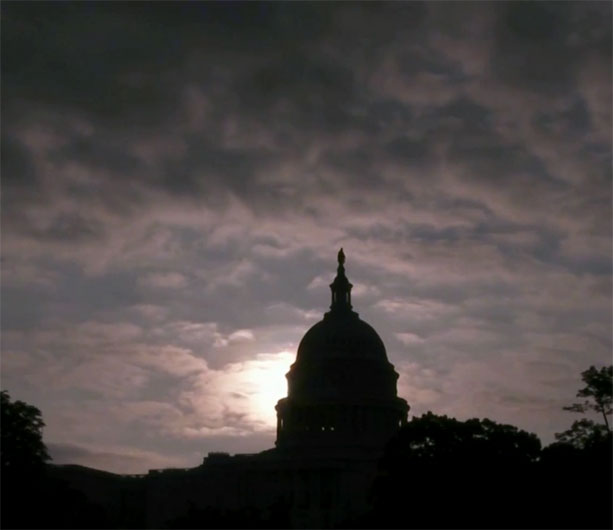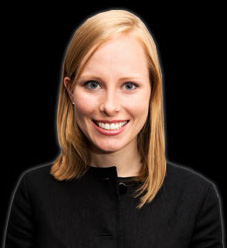
Here's where things stand heading into Day 62 of the Trump administration:
Subtlety might not be President Donald Trump's strong suit - but that may be a good thing on Capitol Hill.
Trump traveled down Pennsylvania Avenue on Tuesday morning to again pitch the GOP health-care plan to members of the House Republican Conference.
With just two days until the House is expected to vote on the Obamacare revision bill, the president worked to persuade recalcitrant lawmakers to help bring his first major policy project over the finish line.
He did this with his signature mix of charm and rebuke. Singling out the chairman of the conservative Freedom Caucus for his opposition to the bill, Trump suggested there would be consequences for members who do not vote "yes" on the health-care bill.
"I'm gonna come after you, but I know I won't have to, because I know you'll vote 'yes,' " Trump told Rep. Mark Meadows, R-N.C., according to several lawmakers who attended the meeting.
Meadows is one of several conservative holdouts who oppose the bill and are pressing for changes. Some adjustments were unveiled Monday night, but members of the Freedom Caucus, which has led opposition to the bill from the right, say some of their big concerns remain unaddressed.
Trump said at a Republican fundraiser Tuesday night that passing a new health-care bill would clear the way for action on "really fantastic" tax reform.
"I think we're going to have some great surprises. I hope that it's going to all work out," he said.
GORSUCH VOWS INDEPENDENCE FROM TRUMP
Across Capitol Hill, Trump's nominee for the Supreme Court faced his second day of questioning from senators keen to suss out his legal philosophy.
Tuesday's questions from Democrats tended toward one prevailing concern: Will Neil Gorsuch allow pressure from Trump to affect his rulings if he is confirmed?
Gorsuch, who sits on the Denver-based U.S. Court of Appeals for the 10th Circuit, said no. Without specifically naming Trump, he also rejected attacks on the independence of the judiciary or the integrity of individual judges - a nod to criticisms that the president has made in the past year.
The confirmation hearings will resume Wednesday morning and are expected to last into Thursday.
WHAT COULD THIS MEAN FOR TRUMP'S LABOR NOMINEE?
Trump failed to see his first Labor Department nominee confirmed. Could there be problems in store for his second?
That nominee, Alexander Acosta, is facing questions about why he cut a non-prosecution deal with billionaire financier Jeffrey Epstein a decade ago, when Epstein was facing allegations that he sexually abused more than 40 underage girls.
Acosta, a former Miami U.S. attorney, is a player in a court battle over why he agreed not to pursue federal charges against Epstein at that time. In 2011, Acosta said he backed off from pressing charges after an aggressive legal campaign by Epstein's defense team.
This is likely to come up Wednesday, when Acosta comes to Capitol Hill for his confirmation hearing.
DOCUMENTS RAISE NEW QUESTIONS FOR MANAFORT
Did Trump's former campaign chairman conceal payments from the party of the ex-leader of Ukraine, who was backed by Moscow while in power and is in hiding to escape corruption charges?
That's what new financial documents reveal about ex-Trump aide Paul Manafort, according to a Ukrainian lawmaker and journalist who released them Tuesday.
If they are legitimate, the documents show that Manafort laundered money from the party of former Ukrainian president Viktor Yanukovych through accounts in Belize and Kyrgyzstan. A spokesman for Manafort called the claims "baseless."
Manafort, as a reminder, resigned from Trump's campaign in August after his name surfaced in connection with secret payments totaling $12.7 million by Yanukovych's party. He denied receiving them.
SOME TRAVELERS TO U.S. MUST CHECK DEVICES
The administration has unveiled another travel ban - this time, on carry-on electronics.
Passengers traveling to the United States from airports in eight Muslim-majority countries can no longer bring laptops, tablets or similar devices into the cabin when they fly.
The ban was designed to address concerns that terrorism suspects have redoubled efforts to hide bombs inside electronic devices. It will last until Oct. 14 and could be extended for another year.


 Contact The Editor
Contact The Editor
 Articles By This Author
Articles By This Author